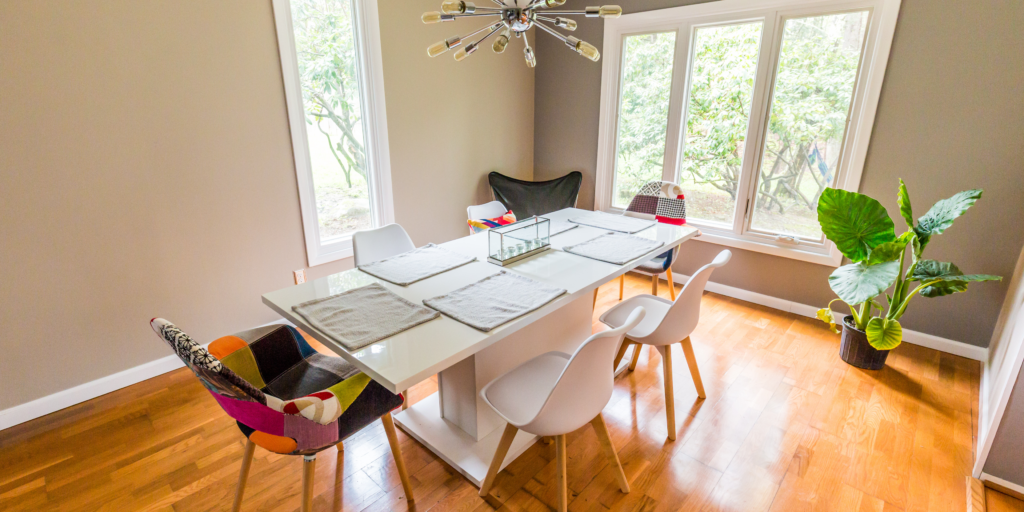Mastering Short-Term Rental Management: 10 Essential Tips for Boosting Your Profits

In the booming world of short-term rentals, mastering the art of management can make all the difference between steady profits and missed opportunities. Whether you’ve just launched your listing or are looking to amplify your existing rental income, understanding key strategies is essential. This article reveals ten vital tips designed to boost your profits while simplifying your operations.
From optimizing your property’s appeal to leveraging technology for seamless guest experiences, these insights will empower you to stay ahead of the competition. With the right approach, you can not only enhance your occupancy rates but also foster return guests who rave about their stay.
Dive in and discover how to transform your short-term rental management into a thriving business model that maximizes revenue while providing memorable experiences for all who visit. Get ready to unlock the full potential of your rental property!
Top 10 Short-Term Rental Management Companies: Maximize Your Profits Today!
Mastering Short-Term Rental Management: 10 Essential Tips for Boosting Your Profits
In the booming world of short-term rentals, mastering the art of management can make all the difference between steady profits and missed opportunities. Whether you’ve just launched your listing or are looking to amplify your existing rental income, understanding key strategies is essential. This article reveals ten vital tips designed to boost your profits while simplifying your operations.

From optimizing your property’s appeal to leveraging technology for seamless guest experiences, these insights will empower you to stay ahead of the competition. With the right approach, you can not only enhance your occupancy rates but also foster return guests who rave about their stay.
Dive in and discover how to transform your short-term rental management into a thriving business model that maximizes revenue while providing memorable experiences for all who visit. Get ready to unlock the full potential of your rental property!
Understanding the Short-Term Rental Market
The short-term rental market has seen explosive growth over the past decade, driven by the popularity of platforms like Airbnb, Vrbo, and Booking.com. Understanding the dynamics of this market is crucial for any property owner looking to maximize their rental income. The first step is to analyze local market trends, which include understanding peak seasons, local events, and competitor pricing. Local events such as festivals, conferences, and holidays can significantly impact demand, allowing you to adjust your pricing and availability accordingly.
In addition to local market trends, understanding the demographics of your typical guests can provide insights into how to tailor your property and marketing efforts. Are your guests primarily families, business travelers, or couples on vacation? Each of these groups will have different needs and expectations. For instance, business travelers might prioritize high-speed internet and a workspace, while families might look for child-friendly amenities and nearby attractions. Tailoring your property to meet the specific needs of your target demographic can enhance guest satisfaction and increase bookings.
Lastly, keeping an eye on the broader industry trends and regulatory changes is essential. The short-term rental market is subject to local laws and regulations, which can vary widely from one location to another. Staying informed about any changes in zoning laws, tax requirements, and other regulations can help you avoid legal pitfalls and ensure that your business remains compliant. Additionally, understanding broader industry trends, such as the increasing demand for sustainable and eco-friendly accommodations, can help you stay ahead of the curve and attract more guests.
Setting Competitive Pricing Strategies
One of the most critical aspects of managing a short-term rental is setting competitive pricing strategies. Pricing your property correctly can make the difference between a fully booked calendar and an empty one. The first step in determining your pricing strategy is to conduct a thorough analysis of your competitors. Look at similar properties in your area, and take note of their pricing, occupancy rates, and guest reviews. This information will give you a benchmark to work from and help you understand what guests are willing to pay for properties like yours.
Dynamic pricing is another powerful tool that can help you maximize your rental income. Unlike traditional fixed pricing, dynamic pricing adjusts rates based on real-time demand and supply factors. During peak seasons or local events, you can increase your rates to capitalize on higher demand. Conversely, during off-peak times, you can lower your rates to attract more bookings. Many property management platforms offer dynamic pricing tools that can automate this process, ensuring that your pricing remains competitive without constant manual adjustments.
It’s also essential to consider offering discounts and promotions to attract guests and encourage repeat bookings. For instance, you can offer a discount for longer stays, last-minute bookings, or early-bird reservations. Promotions can also be tied to specific events or holidays to attract guests looking for accommodations during those times. Additionally, implementing a loyalty program for returning guests can foster repeat business and build a loyal customer base, ultimately boosting your overall profitability.
Crafting an Irresistible Property Listing
Your property listing is often the first point of contact potential guests have with your rental, making it crucial to create an irresistible and compelling listing. The key to crafting an effective listing is to highlight the unique features and benefits of your property that set it apart from the competition. This includes emphasizing any special amenities, such as a hot tub, pool, or stunning views, as well as the property’s proximity to popular attractions, restaurants, and transportation options.
The description of your listing should be clear, concise, and engaging. Use descriptive language to create a vivid picture of the property and the experience guests can expect during their stay. Avoid using generic phrases and instead focus on specific details that make your property unique. For example, rather than simply stating that your property has a “great location,” mention that it is “just a five-minute walk from the beach” or “steps away from the city’s best dining and entertainment options.”
In addition to a well-crafted description, the title of your listing is equally important. The title should be attention-grabbing and include key selling points that will entice potential guests to click on your listing. For instance, instead of a generic title like “Cozy Apartment,” consider something more specific and appealing, such as “Charming Downtown Loft with Skyline Views.” An engaging title combined with a detailed and enticing description can significantly increase the visibility and attractiveness of your listing.
Importance of High-Quality Photography
High-quality photography is one of the most critical elements of a successful short-term rental listing. In the competitive world of short-term rentals, first impressions are everything, and the photos of your property are often the first thing potential guests will notice. Investing in professional photography can make a significant difference in how your property is perceived and can lead to higher booking rates. Professional photographers have the skills and equipment to capture your property in the best possible light, highlighting its unique features and creating a sense of warmth and welcome.
When preparing for a photo shoot, it’s essential to stage your property to showcase its best attributes. This includes decluttering, cleaning, and arranging furniture to create an inviting and aesthetically pleasing environment. Pay attention to details such as fresh flowers, neatly arranged linens, and tasteful decor, as these small touches can make a big impact on how your property is perceived. Additionally, taking photos during the day when natural light is abundant can enhance the overall look and feel of your property.
In addition to professional photos, consider including a virtual tour or video walkthrough of your property. This can provide potential guests with a more immersive experience and a better sense of the layout and flow of the space. A virtual tour can also help set realistic expectations for guests, reducing the likelihood of misunderstandings or dissatisfaction upon arrival. High-quality photography and virtual tours can enhance your listing, making it more appealing to potential guests and ultimately leading to increased bookings and higher profits.
Optimizing Your Rental for Guest Experience
Creating a memorable and enjoyable guest experience is key to attracting positive reviews and repeat bookings. One of the first steps in optimizing your rental for guest experience is to ensure that your property is clean, well-maintained, and stocked with essential amenities. A spotless property not only creates a positive first impression but also sets the tone for the entire stay. Consider hiring a professional cleaning service to ensure that your property is consistently clean and well-presented.
In addition to cleanliness, providing thoughtful and personalized touches can significantly enhance the guest experience. Consider offering a welcome basket with local snacks, beverages, and a personalized note to greet guests upon arrival. Providing information about local attractions, restaurants, and transportation options can also be helpful and show that you care about your guests’ experience. Small gestures such as fresh flowers, high-quality linens, and luxurious toiletries can go a long way in making guests feel special and valued.
Another important aspect of guest experience is effective communication. Be responsive and available to answer any questions or address any issues that may arise during the guest’s stay. Providing clear and detailed instructions for check-in, check-out, and the use of any appliances or amenities can help prevent misunderstandings and ensure a smooth and enjoyable stay. By prioritizing guest experience and going the extra mile to make guests feel welcome and cared for, you can build a positive reputation and encourage repeat bookings.
Effective Marketing Channels for Short-Term Rentals
Marketing your short-term rental effectively is essential for attracting potential guests and maximizing your occupancy rates. One of the most important marketing channels is listing your property on popular short-term rental platforms such as Airbnb, Vrbo, and Booking.com. These platforms have a large user base and offer various tools and features to help you manage your listing and attract bookings. Be sure to optimize your listing with high-quality photos, an engaging description, and competitive pricing to stand out from the competition.
In addition to listing platforms, leveraging social media can be a powerful way to market your short-term rental. Create profiles on social media platforms such as Instagram, Facebook, and Twitter to showcase your property and engage with potential guests. Share high-quality photos, guest testimonials, and local attractions to create a compelling and attractive social media presence. Social media can also be a valuable tool for running promotions and special offers to attract more bookings.
Another effective marketing channel is building and maintaining your own website for your short-term rental. A dedicated website allows you to have complete control over your branding and marketing efforts and can help you reach a broader audience. Your website should include high-quality photos, detailed descriptions, guest reviews, and a booking engine to allow guests to book directly with you. Additionally, implementing search engine optimization (SEO) strategies can help improve the visibility of your website and attract more organic traffic.
Leveraging Technology and Automation Tools
In the fast-paced world of short-term rentals, leveraging technology and automation tools can streamline your operations and enhance the guest experience. One of the most valuable tools for short-term rental management is a property management system (PMS). A PMS allows you to manage bookings, calendars, and guest communications all in one place, reducing the risk of double bookings and ensuring a seamless guest experience. Many PMS platforms also offer features such as automated messaging, dynamic pricing, and financial reporting, making it easier to manage your rental business.
Automation tools can also be used to enhance the guest experience and simplify your operations. For example, implementing keyless entry systems allows guests to check in and out without the need for a physical key exchange. Automated messaging systems can send guests important information such as check-in instructions, house rules, and local recommendations, ensuring that they have all the information they need for a smooth and enjoyable stay. Additionally, smart home devices such as thermostats, lighting, and security cameras can help you monitor and manage your property remotely.
Technology can also be used to gather and analyze data to inform your decision-making and optimize your rental business. Analyzing data on occupancy rates, pricing, and guest reviews can help you identify trends and areas for improvement. For example, if you notice that your occupancy rates are lower during certain times of the year, you can adjust your pricing or marketing strategies to attract more bookings. By leveraging technology and automation tools, you can streamline your operations, enhance the guest experience, and ultimately boost your profits.
Building Strong Relationships with Guests
Building strong relationships with guests is essential for creating positive experiences and encouraging repeat bookings. One of the most important aspects of building relationships with guests is effective communication. Be responsive and available to answer any questions or address any issues that may arise before, during, and after the guest’s stay. Clear and timely communication can help build trust and ensure that guests feel valued and cared for.
Personalizing the guest experience can also help build strong relationships and create positive memories. Consider offering personalized recommendations for local attractions, restaurants, and activities based on the guest’s interests. Providing thoughtful touches such as a welcome basket, handwritten note, or special amenities can make guests feel special and appreciated. By going the extra mile to make guests feel welcome and cared for, you can create a memorable and enjoyable experience that encourages repeat bookings and positive reviews.
Following up with guests after their stay is another important aspect of building strong relationships. Send a thank-you message and ask for feedback on their experience. Addressing any issues or concerns promptly and professionally can help resolve any potential problems and show that you value their feedback. Additionally, offering a discount or special offer for future stays can encourage repeat bookings and build a loyal customer base. Building strong relationships with guests can lead to positive reviews, repeat bookings, and ultimately, increased profits.
Managing Reviews and Feedback
Managing reviews and feedback is a crucial aspect of short-term rental management. Positive reviews can significantly impact your property’s visibility and attractiveness, while negative reviews can deter potential guests. The first step in managing reviews is to encourage guests to leave feedback after their stay. A follow-up message thanking guests for their stay and requesting a review can help increase the number of reviews you receive.
Responding to reviews, both positive and negative, is equally important. Thank guests for their positive feedback and express your appreciation for their kind words. For negative reviews, it’s essential to respond professionally and address any issues or concerns raised by the guest. Apologize for any shortcomings and explain the steps you are taking to address the issue. A thoughtful and professional response can help mitigate the impact of a negative review and show potential guests that you are committed to providing a positive experience.
Using guest feedback to improve your property and guest experience is another important aspect of managing reviews. Pay attention to recurring themes or issues mentioned in reviews and take action to address them. For example, if multiple guests mention that the property could use better lighting, consider adding additional light fixtures or brighter bulbs. By continuously improving your property and guest experience based on feedback, you can enhance guest satisfaction and increase the likelihood of positive reviews.
Conclusion: Sustaining Long-Term Success in Short-Term Rentals
Sustaining long-term success in the short-term rental market requires a combination of strategic planning, effective management, and a commitment to providing exceptional guest experiences. By understanding the dynamics of the short-term rental market, setting competitive pricing strategies, and crafting an irresistible property listing, you can attract more bookings and maximize your rental income. Investing in high-quality photography, optimizing your rental for guest experience, and leveraging effective marketing channels can further enhance your property’s appeal and visibility.
Leveraging technology and automation tools can streamline your operations and enhance the guest experience, allowing you to manage your rental business more efficiently. Building strong relationships with guests and managing reviews and feedback professionally can lead to positive reviews, repeat bookings, and a loyal customer base. Continuously improving your property and guest experience based on feedback can help you stay competitive and attract more bookings.
Ultimately, sustaining long-term success in the short-term rental market requires a commitment to excellence and a willingness to adapt to changing market conditions and guest expectations. By implementing the ten essential tips outlined in this article, you can transform your short-term rental management into a thriving business model that maximizes revenue while providing memorable experiences for all who visit. With the right approach, you can unlock the full potential of your rental property and achieve long-term success in the short-term rental market.

Sobre o Autor



